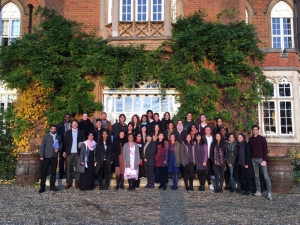I began writing my December year-in-review post, but it felt wrong and early. I had included an event in one of the highlights of my year, but it really warrants its own post.
So, here goes. Cumberland Lodge 2016: Psychology edition.
Before I dive in, I would like to preface this post with an…explanation. I’m just coming off of writing a 5000 word essay on paradigmatic approaches to change in organisations (I know, right?), so, much like a marathon runner with microphones in her face asking how the race went, I am panting and my writing may thus sound laboured. Forgive me.
Cumberland Lodge was a beautiful experience, and one that I hope all students get to have in future years. I highly recommend signing up early, as spaces are limited. One thing about the experience we had not expected was the intensity: intense learning paired with intense fun, all in the Queen’s backyard.
We piled into the bus at 4:30 pm on Friday, and it instantly felt like a school field trip (we’re Master’s students, I know, let us have some fun). The bus ride de-escalated from excited talking, singing, snacking, to napping, and we finally arrived at the Lodge 2 hours later.
(Sidenote: this is really fun to reflect upon; I was worried I wouldn’t remember as many little details as I do. Such is the magic of embodied experience!)
After receiving room allocations, we all had dinner together, which in itself was comforting and harmonious. You see so many people both in your MSc and in general, that sitting down and dining together like a family seems impossible. But this weekend proved an ideal opportunity to do so!
Dinner was followed by PhD talks, wherein the students each shared their trajectories and experiences before and during the programme. I have to give a huge shoutout to the Psychology PhDs that were so patient in sharing their experiences and providing us support all weekend – Brett Heasman, Sandra Obradovic (interested in political psychology), Cel Okoroji (researches unemployment and identity), Maria-Cecilia Dedios Sanguineti, and Amena Amer, thank you! You really make the Department a great place to study at. You can check out their research profiles by clicking through the link.
After the talks, we all hung out at the bar and chatted till late. I was particularly inspired by my dissertation supervisor, who managed to stay up later than us and still deliver an impressive talk the next morning!
Saturday was the most cognitively and socially intense day, with 3 academic talks, 1 (heated) debate, and 1 (just as heated) dance floor. Dr. Tom Reader presented his work on the Healthcare Complaints Analysis Tool that harnesses patient complaints as a data source to inform organisational learning, Dr. Jennifer Sheehy-Skeffington discussed her work on poverty and inequality, and Dr. Michael Muthukrishna outlined the evolution of human psychology, with interesting connections to economics and anthropology. The talks were punctuated by a student debate facilitated by Dr. Ben Voyer, Visiting Professor at the LSE.
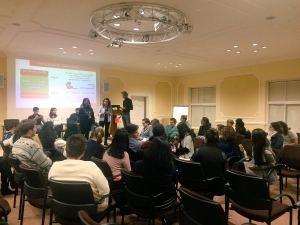
The student debate was possibly the most interesting experience of the weekend. We were randomly assigned to the Proposition or Opposition, Parliamentary style, for the topic: consumers are free because they have choice. Although the point was to use social psychology theories to delineate an argument as we would for an essay (hint, hint), the debate devolved into being the loudest voice or the sharpest talker, much like any political debate, I suppose. The pressure to win outweighed the importance of critically deconstructing an argument, which in itself proved to be a meta-learning experience, underscoring the importance of listening and drawing connections between theory and practice.
Saturday night was the ‘intense fun’ portion of the weekend. Cumberland Lodge has a cool party basement (basically a lot of lights and a sound system, I’m not picky about my party basements), and it was a much needed evening of letting loose and chilling.
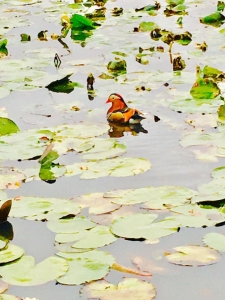
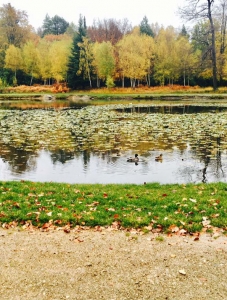
In between the planned events, I have to also emphasise the beauty of the area. Windsor Great Park is lovely to wander around in, with grazing sheep, cows, deer, and a magnificent duck (see photo). The serenity of the region is what appealed to me the most, and I reveled in taking silent walks with a few like-minded peers to absorb the nature around us. Like my Cambridge experience, this too gave my soul peace. It is so important to get away from the urbanity of London from time to time. We got a view of Windsor Castle from atop a hill, and many students made a trip to the Castle itself and said it was a great experience. So, put that on your list as well!
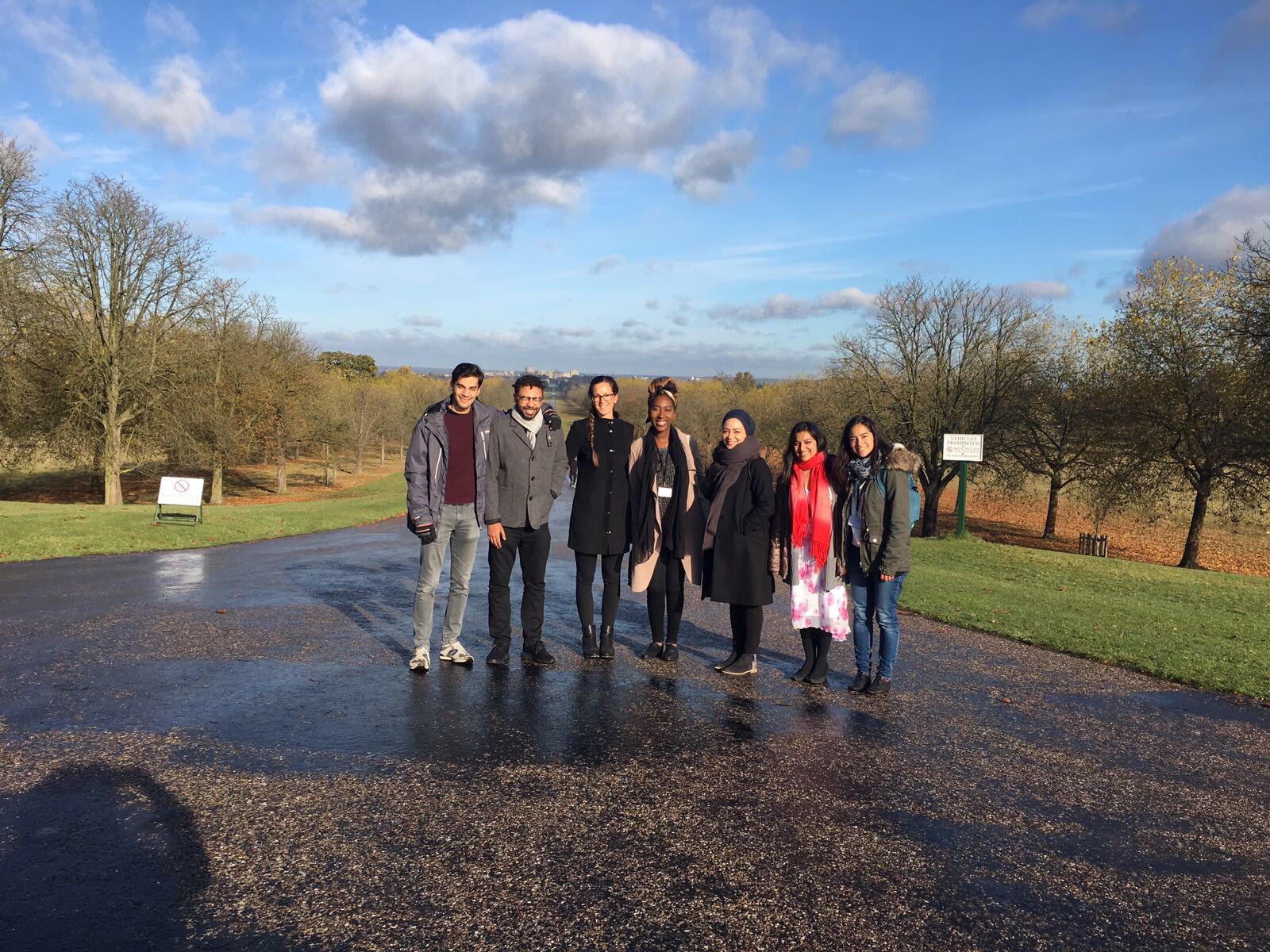
Finally, Sunday arrived, and so did the melancholy. It was such an enriching weekend that it was hard to say goodbye. We had some wonderful talks by Dr. Martin Bauer (science and common sense), Dr. Bankole Falade (science and religion in Nigeria), and Dr. Sandra Jovchelovitch (identity, culture, and resistance in the favelas of Rio de Janeiro). We then had some lunch, took some photos, boarded the bus, and came home to London.
My biggest takeaway from this experience was on ideas. We are all uniquely capable of so much thought and are saturated with information, that you need weekends like this of communication, collaboration, debate, and bonding to meaningfully share ideas. I learned so much this weekend, from academics, PhD students, and my fellow MSc peers (both in my programme and out), but not just about academic topics – I learned of their personal lives, their aspirations, and what gives them meaning. And as a social psychologist, I could not ask for more.
